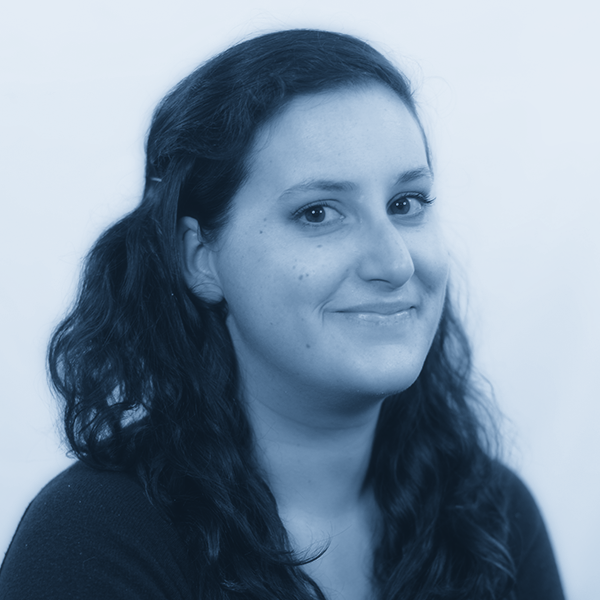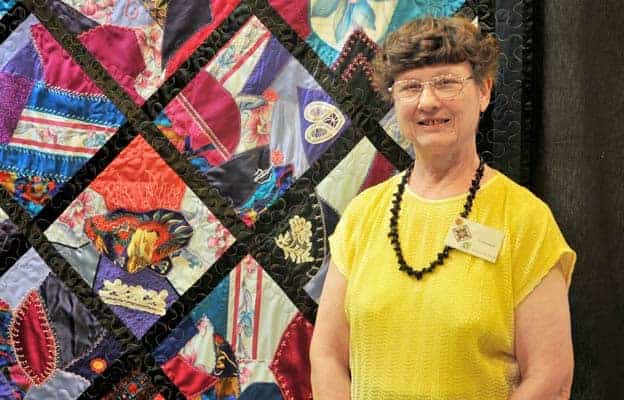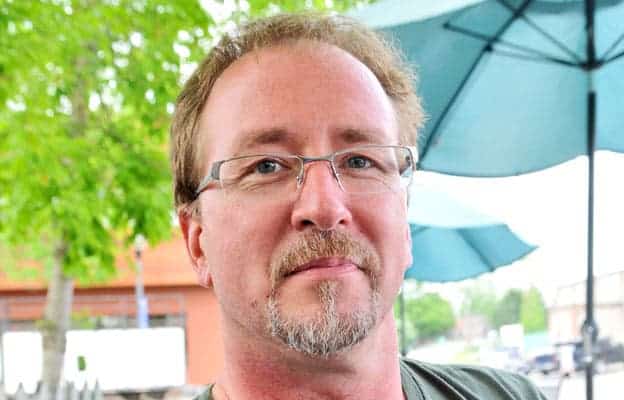If you’ve ever been curious about quilting, now’s your chance to learn. The Quilt and Fibre Art Festival on this week runs through Saturday in St. Jacobs, and features quilt shows and classes across the region, including the “Quilts for the World” show at St. Jacobs Mennonite Church where Irene Dickau’s “crazy quilt” is displayed.
![Irene Dickau created this “crazy quilt” for the Quilts of the World show at St.Jacobs Mennonite Church.[Whitney Neilson / The Observer]](https://www.observerxtra.com/content/images/wp-content/uploads/2014/05/post_news_quilts1.jpg)
The bright reds, blues, and purples of her piece catch your eye as you step in the room of quilts made by the Needle Sisters Quilt Guild of Elmira, of which Dickau is a member.
“It’s made with satins and brocades and silks and sashed with ribbon and put on point as opposed to straight across the box,” said Dickau. “It is a bed coverlet, as opposed to a quilt, although there is machine quilting to hold it and then it’s just backed with a solid dark backing. It took me a long time to do because I did it in stages.”
The process included machine stitching, free-hand embroidery, appliquéing material, and sashing ribbon; a lengthy process that took her a few years to complete. She started quilting when she got married and moved to the Elmira area.
She said she was inspired to create the quilt by “mainly the fabrics that I had accumulated, and the technique knowing that a crazy patch is easier to do. You don’t have to precut everything according to a pattern. You can just slap on whatever you like.”
Thirteen members of the Needle Sister held work bees over the winter to create three quilts being donated to the Lutherwood Home Group of Waterloo, a centre for youth to receive mental health services. Each child who goes through the program at Lutherwood gets to choose a teddy bear and quilt to take with them when they leave. The colourful quilts are on display until the end of the festival, when they will be put to good use.
“For the big ones, I’d say we have 25 to 30,” said Dickau. “Then you’ve got the small ones, like the crib-sized ones, it could be the same number. And then you’ve got all the small pieces. We have a lot this year because we had to go to the chairs to put them on. Otherwise, they would all hang.”
She estimates they’ll see 300 to 400 people come through to see the show because despite being out of the way, a lot of bus tours make the trip there.
She said the St. Jacobs Schoolhouse Theatre’s display has a lot of art quilts, like landscapes that are painted or embroidered. That show runs until Saturday (10 a.m. to 4 p.m.) and has guest artist, Martha Wiens from Leamington.
The Needle Sisters also did a mystery quilt this year.
“One of our members would bring in kits of the cloth and the patterns and then you had to go home and cut them and assemble them and you could only do so many at a time,” said Dickau. “And so the next month she would give you another set of something different and it wasn’t until the very end when you had everything all done according to directions and fitted together that you’d see the result.”
Dickau said the large quilts on display could range anywhere from $700 to more than $1,000, depending on the fabric and if it was hand quilted versus machine quilted.
She bought her first quilt for $200 when she moved up near Drayton, shortly after getting married, a steal of a deal nowadays.
“It was a big one and had almost 50 blocks and it was appliquéd cornflower,” said Dickau. It was in pinks and whites and all of that was hand-stitched and then it was hand-quilted. I think back for $200, all the work that went into making something like that.”
Some of the displayed quilts will go to the New Hamburg Mennonite Relief Sale, at the New Hamburg Fairgrounds on Saturday (7 a.m. to 4 p.m.).
Rick Cober Bauman, executive director of the Mennonite Central Committee Ontario, said the relief sale is the most identifiable event people associate with the MCC.
“And I think that goes for people well outside the Mennonite world, who have been at the sale and are regulars or not,” said Cober Bauman. “It occupies a pretty prominent place in the region. That’s part of the long-term soft benefit to the organization.”
The money raised from the sale goes toward MCC’s work in relief development and peace around the world, specifically Bosnia and Nigeria, where Cober Bauman just returned from.
“We always say there’s a particular benefit to relief sale giving because it comes in as general giving. People do not designate where money is going to when they buy a quilt or buy a burger. That money can go for any of the difficult to fund kinds of work that we do.”
He said it’s not always easy to raise money for places like Nigeria where they’re doing visible work but there’s ongoing conflict. Members of the MCC from New Hamburg are in Jos, a Nigerian city hit by a series of bombs last week.
“They made the comment that the bombs that went off there last week, if they had happened several months or even years ago before some of the peace-building work had been done that those bombs would have set off city-wide rioting,” said Cober Bauman. “That didn’t happen. So while there was a lot of sadness that the bombing had happened, there was recognition that the ability to contain that was at least a modest sign of MCC’s impact there.”
The MCC has a long history of working in Bosnia, helping to bring together people that were in conflict due to the civil war nearly 20 years ago. This includes veterans from the Serbian and Bosnian armies.
“Those veterans are working to understand ‘not only what was the impact on my people as a Serb and where are we putting up memorials where Serbian people lives were lost, but what would happen if we as veterans would also go to the memorials that have been put up by the Bosnian community, and how does it change our understanding of the war?’”
The MCC is working to reduce the violence they’ve seen in Bosnia and Nigeria. By doing this, they hope the long-term development in water, food, and education they’ve worked so hard at will remain intact and make a difference.
For Cober Bauman, some of the sale’s highlights are the doughnuts, watching the quilt auction, seeing the next generation grow up, and the festival atmosphere.
“There’s some pretty remarkable investment in difference-making, change-making that happens from the hundreds of thousands of dollars that get raised in one day at the sale.”
For more information visit www.stjacobs.com or www.nhmrs.com.
With files from Scott Barber.









